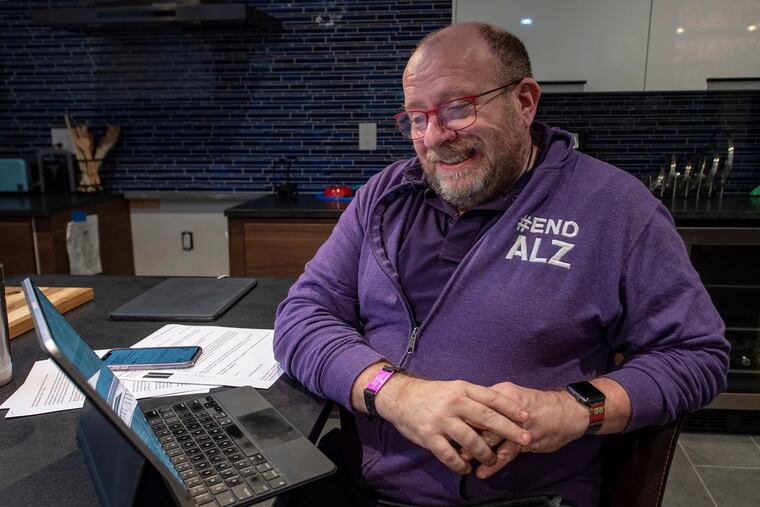FDA’s approval of Biogen’s Alzheimer’s drug offers patients, families rare glimmer of hope | Patient Perspective
I believe this drug has helped slow down my disease progression. In fact, I feel better than I have in years, more able to focus and comprehend.

Alzheimer’s history was made this month. And I helped.
For much of the last five years, I have been a participant in a trial for aducanumab, which won conditional approval from the FDA. I’ve endured monthly intravenous infusions, quarterly MRIs, annual PET scans, and more cognitive assessments than I can count.
I watched with sadness as Biogen first canceled the aducanumab trial in 2019, saying that it had failed a “futility analysis.” I then celebrated nine months later as Biogen announced late arriving data suggested that the drug was working. It was then that the company announced it would be applying to the FDA for approval to market the drug commercially.
At the time, Biogen also announced it would open a new clinical trial for people who had previously participated in testing the drug — those like me. I’ve been a part of that new study for the last year.
So yes, hell yes even, I’m delighted that the FDA gave Biogen conditional approval to market the drug. I believe this drug has helped slow down my disease progression. In fact, I feel better than I have in years, more able to focus and comprehend. I’m not cured in any way, but I do feel better. I believe aducanumab, now known as Aduhelm, has made a difference.
I have no bitterness toward the many doctors, researchers, and statisticians who vociferously urged the FDA to reject Aduhelm. I understand they are trained to follow the data, and want to see more evidence for this therapy. And I understand they are also deeply concerned about approving a medication that may not check off the boxes — and at $56,000 a year, is extremely expensive. As a participant in a clinical trial, I have not had to pay for it.
» READ MORE: Penn dementia expert on newly approved Alzheimer’s drug: ‘The data aren’t strong enough’
But I urge the critics to put themselves in our shoes, the shoes of those facing a horribly degenerative disease that hasn’t seen any new treatment approved for almost two decades. Worse yet, no drug has ever been approved that is believed to treat the underlying causes of Alzheimer’s. Instead, medications available until now have only masked some symptoms, and they’ve come with some pretty awful side effects.
So when we have something that offers the potential hope of actually slowing down the progression of Alzheimer’s, of course we are going to want to make that available to as many people as possible. It’s not like we have many — or any — alternatives.
I’m also firmly convinced that the approval of Aduhelm is going to encourage even more innovation in the Alzheimer’s field. This sorely needed victory will encourage biopharmaceutical companies and the federal government to place even more emphasis on studying, funding research, and finding new treatments for Alzheimer’s — a public-health crisis that continues to worsen.
I’ve spoken with a friend who reached out to her husband’s neurologist and insurance company to see if Aduhelm would be available and advisable. Anecdotally, she reported that both the doctor and insurance company were slammed with similar inquiries, showing that there is a huge unmet need for a drug like Aduhelm.
Those of us living with Alzheimer’s — and our families — are desperate for hope. And even with all of its caveats and conditions, the FDA’s approval of Aduhelm last week gave us just that: hope. Let’s not discount how important that is.
Phil Gutis, of Bucks County, is a retired journalist and a board member for the Alzheimer’s Association Delaware Valley Chapter.